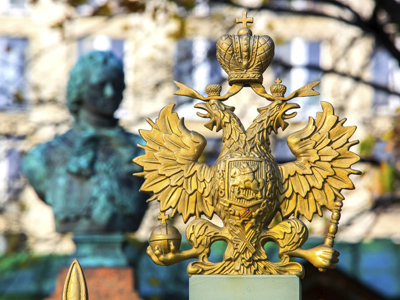
|
The river as a metaphor for human life is one of the oldest clichés.1 But sometimes life imitates metaphor, and this time may be one of them.
When you’re traveling on a river that is broad, flat, and smooth, sometimes you hear a distant roaring, the sound of rapids and maybe even a waterfall ahead. You can’t turn around, you can’t stop the flow—either of the river or of time itself. All you can do is move forward in hope and confidence, knowing that your skills and courage might let you survive whatever drop in elevation and resulting rapids and rocks the river ahead throws at you. Or not, and then you will be beyond caring, because you are drowned and dead.
And if you could find a way off the river—pull to shore and abandon the water and its currents, stop time itself—all you would be doing is either placing yourself in limbo or joining another river. And there you might not even hear the falls before you went over them.
When I was growing up, my parents taught a severe form of bravery that was in one sense pure fatalism. Some bad things are just going to happen, so you might as well face them and get it over with. Or, as my mother would say when we had to clean up certain messes, “If that’s the worst thing you ever have to put your hands into, consider yourself lucky.” Life is hard, and there’s no use in cowering, because whatever lies ahead will come to you anyway.
But these were people who, despite having been raised in loving and relatively well-to-do families, graduated from high school into the start of the Great Depression, then graduated from college at its depths, and finally moved forward into World War II. In those days, if you weren’t strong, capable, flexible, and emotionally resilient, you collapsed under the weight of your own fear and despair.
I’ve experienced a similar fatalism—and written about it elsewhere—while riding a motorcycle.2 Sometimes you are faced with a difficult, declining-radius curve, or you take a bad line through any curve, or you suddenly discover an obstacle lying in the road around a corner. Or sometimes another driver cuts you off and suddenly truncates your path to safety. There is no way, on a motorcycle, to stop time, to reconsider, to take measurements, and then to lay out, analyze, and choose among all the available options. You just have to deal with what’s coming in real time, relying on all your learned skills and reflexes, hope for the best, and choose to have no regrets.
Twenty-twenty has proven to be a time something like the decade my parents faced. We started off in January with a hugely successful economic environment, low unemployment, and bright prospects. Then a novel virus with unknown but frightening prospects for transmissibility and lethality—and with remarkable differences of public and professional opinion, as well as quoted statistics, even among scientific and political experts, regarding its actual effects, even extending to its origins and possible human development—took the country, the world, and the global markets into economic standstill, if not freefall. In this country we were already in the midst of political turmoil, with one party declaring every “resistance” to a legally elected president, even challenging that election itself because, as sometimes happens, the popular and electoral votes did not coincide.
In the midst of what is shaping up to be another Great Recession, if not an economic malaise worse than the Great Depression, we are headed into a national election that is sure to be contested. If President Trump is elected with another minority popular vote, or valid claims of voter suppression, or any whiff of foreign collusion and interference, then the Democratic, progressive left will explode. If the prospective Democratic candidate Joe Biden, who appears to labor under some obvious mental handicaps, is elected along with a vice president largely chosen by the party to serve out the four-year term in the event of his incapacity, and with any hint of vote fraud or “ballot harvesting,” then the Republican, conservative right will explode. In any event, the strictures of the pandemic may lead some to call for the election itself to be postponed or delayed indefinitely—and then everyone’s head will explode.
These are difficult times. We are exposed to medical, political, and economic stresses that I have not experienced in my long years as a politically conscious adult. And as I have expressed recently, I don’t know what the future will bring. I never thought, as I was entering the placid delta of my life, with the beckoning, anonymous sea and its promise of dissolution just ahead, that I would hear the roar of rapids in front of me. At this point, all I can do is lighten my load, tighten my straps, firm up my grip on the paddle, and get ready to ride the river.
1. You are born in a spring that seeps from a hillside, far above the plains; spend your youth tumbling over rocks and rills, suffering the pains of early childhood and adolescent development as a physical and social being; enter the broad stream of experience, skills, and achievements as a competent adult; sometimes become trapped in a lake, where the stream no longer carries you forward, so that you must paddle hard to get anywhere; end up in the still, sluggish waters of the delta in late age, with all your forces spent; and finally get flushed out to dissolution in the great and anonymous sea. It’s a metaphor that ultimately tells you nothing new about life.
2. Much of this also applies while driving a car, but inside the steel cage you are a little more distanced from cold, hard reality, and your knees are a bit farther from the hard, unforgiving pavement.

